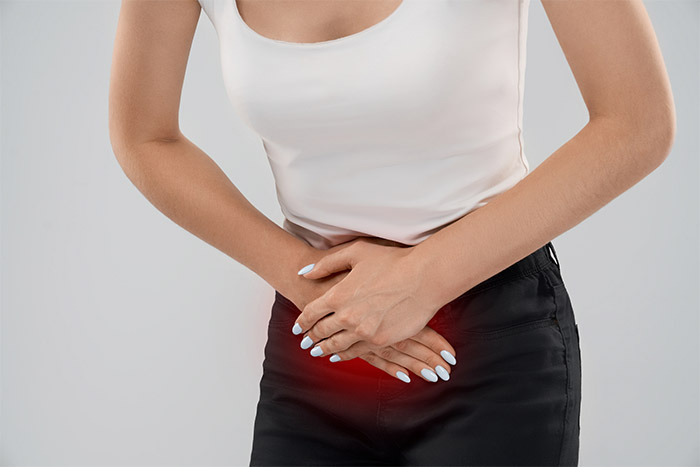Let’s talk about periods. No shame, all games! And with that time of the month comes the trusty pad, our BFF for leakproof confidence. But have you heard murmurs about pads causing UTIs (Urinary Tract Infections)? Hold on, before you ditch your pad in a panic, let’s debunk this myth!
UTIs happen when bacteria sneak into your urinary tract, usually from the corner regions. Pads themselves don’t cause this migration, but they can create an environment where those sneaky bacteria might linger a little longer. Here’s why:
- Moisture: Pads absorb period flow, which is great, but that moisture can also trap some natural vaginal discharge. This warm, damp situation can be a breeding ground for bacteria if you don’t change your pad regularly. Just like with any clothing, fresh is best!
- Friction: Ill-fitting or rough pads can irritate the delicate vulvar skin. This irritation can disrupt the natural balance of good bacteria down there, making it easier for bad bacteria to take hold. So, choose pads that are soft and breathable, like SOFY Antibacterial Pads that protect you from harmful bacteria.
So, how can you stay UTI-free during your period?
- Change it Up: Aim to change your pad every 4-6 hours, or more often if needed. SOFY offers pads with a variety of absorbencies, so you can choose the right one for your flow and change frequency.
- Wipe Wisely: Always wipe front to back after using the toilet to prevent bacteria from travelling from your rectum to your urethra.
- Cotton is King: Choose breathable cotton underwear over synthetic fabrics to keep things fresh down there.
- Hydration Hero: Drink plenty of water throughout your cycle to flush out bacteria naturally.
Additionally, if you experience frequent burning, stinging, or pain when you pee, even with good hygiene, consult a doctor. Early diagnosis and treatment can prevent complications.
Remember, periods are a natural part of life, and UTIs don’t have to be a part of the package. By following these simple tips and choosing comfortable, absorbent pads like SOFY, you can sail through your period with confidence, comfort, and ease!
FAQ’s
2. Why does not changing a pad regularly increase the risk of UTI?When a pad is worn for too long, menstrual blood, sweat, and natural vaginal discharge create a damp environment. This can trap bacteria close to the urethra, raising the risk of infection. Changing your pad every 4–6 hours helps keep the area clean and dry. 3. What type of sanitary pads should I use to avoid irritation and possible UTIs?Choose soft, breathable pads that are gentle on the skin. Pads like SOFY Antibacterial Extra Long Pads are specially designed to reduce irritation and provide 99.9% bacteria protection, helping you stay fresh and infection-free. 4. How can friction from pads lead to urinary infections?Pads that are too rough or poorly fitting can cause friction and irritation to the vulvar skin. This irritation may upset the natural balance of protective bacteria, making it easier for harmful bacteria to grow near the urinary tract. 5. How often should I change my pad to reduce the risk of UTI?You should aim to change your pad every 4 to 6 hours, or more frequently if your flow is heavy. This prevents the buildup of moisture and bacteria that could lead to skin irritation or infection. 6. Does the type of underwear I wear during periods affect UTI risk?Yes. Wearing breathable cotton underwear helps reduce moisture and allows airflow, which lowers the risk of bacterial buildup. Avoid tight-fitting synthetic fabrics that trap heat and dampness. 7. Can drinking water help prevent UTIs during periods?Absolutely! Staying well-hydrated helps your body flush out bacteria naturally through urine. Aim to drink plenty of water throughout the day, especially during your period. 8. What are the signs that I might have a UTI?Symptoms of a UTI include:
If you experience any of these, see a doctor promptly. 9. Is wiping front to back really important during periods?Yes. Always wipe from front to back to avoid transferring bacteria from the rectum to the urethra. This simple hygiene habit greatly reduces the risk of UTIs. 10. Can I prevent UTIs by using antibacterial sanitary pads?Yes, pads like SOFY Antibacterial Pads are designed to reduce bacterial growth by offering bacteria protection and better airflow. When combined with good hygiene habits, they can help reduce the risk of infections during your period. |

